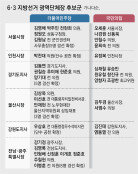Russia Reveals Old Diplomatic Documents to Mark 120th Anniversary of Korea-Russia Relations
Russia Reveals Old Diplomatic Documents to Mark 120th Anniversary of Korea-Russia Relations
Posted July. 09, 2004 22:07,
Russias foreign department disclosed 40 documents related to Korea from its archives on July 8 to mark the 120th year of the diplomatic ties between Chosun, Koreas last dynasty, and Imperial Russia.
The department invited Korean diplomats and correspondents to its museum to view the documents. On a separate occasion, it also invited North Korea. The document will be published in book form by the Moscow State University of International Relations.
Among the documents were the original copy of Chosun-Russia Trade Treaty (picture) contracted on July 7, 1884 and a variety of documents, correspondences, cables, instructions, and memos.
The original copy of the treaty was initially disclosed in an exhibit at the National Museum of Modern Arts in Seoul in 2000 to mark the 10th anniversary of the diplomatic normalization between Korea and Russia. However, some documents were disclosed for the first time and proved to have historical value for their revelations of the situation in Korean peninsula in the late 19th century.
Especially, documents related to Karl Ivanovich Veber, the diplomatic minister who was stationed for more than 10 years since 1885, are the show stealer. He was the central figure in Imperial Chosuns diplomatic circle and played a pivotal role in opening diplomatic ties between the two countries and in forming a pro-Russian fraction in the Chosun dynasty.
Among the documents was a letter sent by Gojong, a Chosun king, in 1895 asking for an extension of Vebers stint in Korea. It shows the Chosun dynastys deep trust in him. Some documents show Gojongs defection to the Russian legation in 1896 was carefully engineered by Veber. The 40 documents include secret cables by Veber asking the Russian government for troops, notifying the arrival of Russian sailors in Seoul, and reports on Gojongs successful defection. In a letter from 1897, Gojong expressed gratitude to Emperor Nicholai for protecting him. With his defection to the Russian legation, a pro-Russian cabinet was formed and many economic and political interests fell under Russian control. A Korean-language document authorizing Russia to excavate alluvial gold in Kyongwon, Hamkyong Province sums up such changes.
Ki-Hyun Kim kimkihy@donga.com



![[단독]주한미군 무기 중동 차출 협의…핵심 ‘에이태큼스’ 거론](https://dimg.donga.com/c/138/175/90/1/wps/NEWS/IMAGE/2026/03/05/133466662.1.jpg)

![[김순덕 칼럼]‘삼권장악 대통령’으로 역사에 기록될 텐가](https://dimg.donga.com/c/138/175/90/1/wps/NEWS/IMAGE/2026/03/04/133466302.1.jpg)

